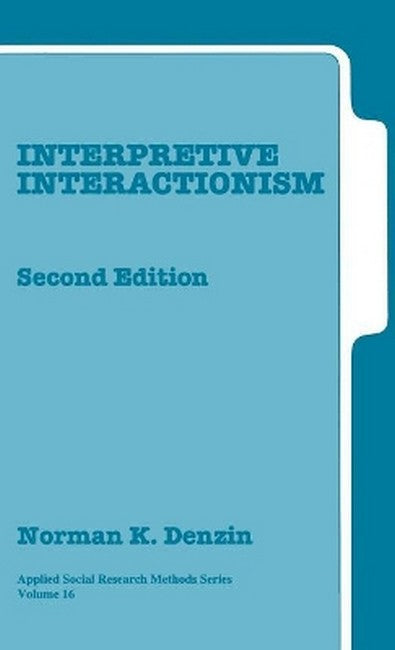Norman K. Denzin is Distinguished Emeritus Professor of Communications, College of Communications Scholar, and Research Professor of Communications, Sociology, and Humanities at the University of Illinois at Urbana-Champaign, USA. One of the world's foremost authorities on qualitative research and cultural criticism, he is the author or editor of more than 30 books, including The Qualitative Manifesto; Qualitative Inquiry Under Fire; Reading Race; Interpretive Ethnography; The Cinematic Society; The Alcoholic Self; and a trilogy on the American West. He is past editor of The Sociological Quarterly, co-editor of six editions of the landmark SAGE Handbook of Qualitative Research, co-editor (with Michael D. Giardina) of 18 books on qualitative inquiry, co-editor (with Yvonna S. Lincoln and Michael D. Giardina) of the methods journal Qualitative Inquiry, founding editor of Cultural Studies?Critical Methodologies and International Review of Qualitative Research, editor of four book series, and founding director of the International Congress of Qualitative Inquiry.
Request Academic Copy
Please copy the ISBN for submitting review copy form
Description
Preface 1. Interpretive Criteria in the Seventh Moment Interpretive Criteria in the Seventh Moment The Performance Turn Experiences and Performances Performing Montana Conclusions 2. The Interpretive Point of View Performing Racial Memories Personal Biography The Interpretive Heritage Opening Up the World for Interpretation What Is Interpretive Interactionism? Interpretation and Science History, Power, Emotion, and Knowledge The Criteria of Interpretation The Agenda Conclusions 3. Securing Biographical Experience Exemplars Overview Narrative's Moment Selves, Narratives and Sacred Places Interpreting and Biographical Conclusions 4. The Interpretive Process The Steps to Interpretation Framing the Research Question Deconstruction Capture Bracketing Construction Contextualizing Evaluating Interpretive Materials Conclusions 5. Situating Interpretation Time, History, and Mapping Learning the Language and Its Meanings Researcher as Newcomer and Knowing Subject Conclusions 6. Thick Description A Double Crisis Thick Description as Performative Writing Examples of Thick Description-as-Inscription Thin Description-as-Inscription Good and Bad Thick Description Conclusions 7. Doing Interpretation Exemplars of Interpretation What Interpretation Does Types of Interpretation and Exemplars Performing and Representing Interpretation Understanding Conclusions 8. Conclusion: On Interpretive Interactionism Interpretation Biographical Experience Reading and Writing Experience Fiction and Interpretation Interpretive Interactionism in the Postmodern Period Glossary of Terms References Index
'Interpretive Interactionism argues strongly for a new approach to qualitative research methods. Writing primarily for established practitioners and advanced graduate students, Denzin seeks to fuse influences of symbolic interactionist, hermeneutical, feminist, post-modern and critical-biographical thought into his personal approach to research, which he calls interpretive interactionism' - Contemporary Sociology

